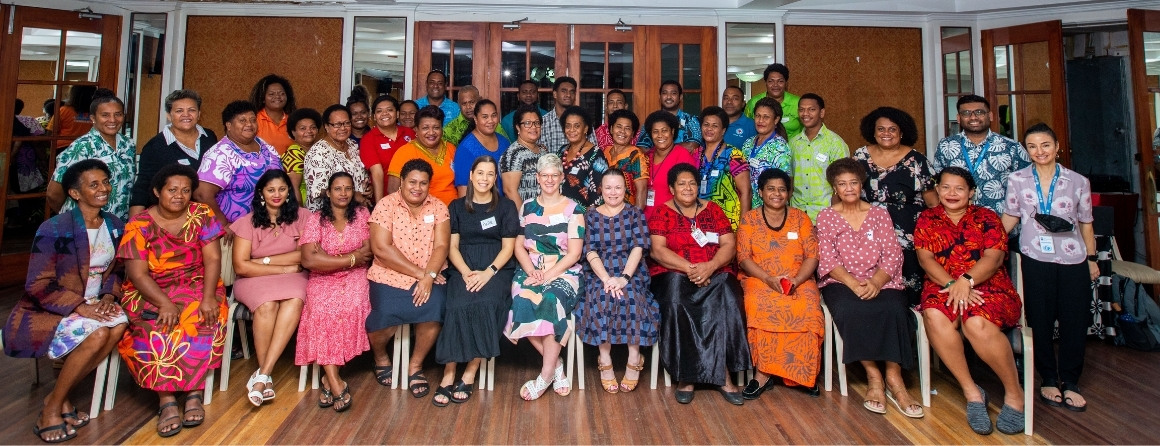Championing the vaccine cause in the Pacific

When it comes to vaccinations, Australians are prepared to roll up their sleeves.
Australia is a health-literate nation with some of the highest immunisation rates in the world. But in countries where vaccine rates, resources, and confidence are low, it’s a challenge to inoculate the masses. To help boost the roll-out of vaccines, researchers from the Murdoch Children’s Research Institute recently visited Suva, Fiji, to champion the cause.
The Vaccine Champions Training Program, co-designed by Associate Professor Margie Danchin, Dr Jessica Kaufman and Belle Overmars alongside local stakeholders, brought together community health workers, faith leaders, a village head man, public health students, the Fiji Red Cross Society, the Fiji Ministry of Health and Medical Services, the Fiji Rugby men’s and women’s sides and the Fiji Cricket women’s team.
The program, tailored to the Fijian context, focused on COVID-19 boosters for adults, COVID-19 vaccines for the five to 18 years age group and routine childhood vaccines.
The Murdoch Children’s team trained the newly anointed ‘Vaccine Champions’ to help them understand vaccination, how to advocate for vaccines, communicate with people who have questions, how to find up-to-date information and deliver vaccine information sessions to their communities. The Fiji Ministry of Health and Medical Services also administered COVID booster doses to those who were yet to receive one. Many of the champions took up the opportunity to “practice what they preached.”
The team will continue to support the Vaccine Champions over the next three months as they deliver vaccine information sessions to their communities. The project will be extended to two other countries in the Pacific Region in the coming year.
The Vaccine Champions Training Program
The program has been developed in collaboration with UNICEF Pacific, the Fiji Ministry of Health and Medical Services, the University of Sydney, and the University of New South Wales. The project is supported by NCRIS, ARIA-RISE and DFAT.



